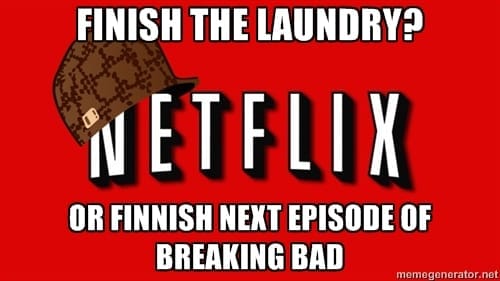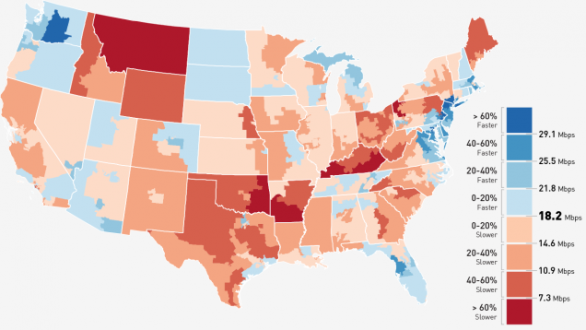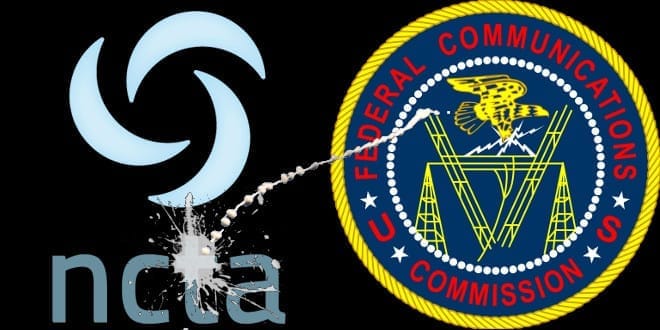Today in a press release, the FCC declared a change in how the term "broadband" is defined in association with various internet-access packages provided by ISPs like Comcast. In the document, the FCC redefines broadband as 25Mbps/3Mbps, as apposed to the previous 4Mbps/1Mbps.
The Commission had signaled a push towards this idea back in May of 2014. In response, they were sent this letter from the National Cable & Telecommunications Association(NCTA).
The statement from the NCTA reads like a complex legal document and seems a bit condescending. It warns that it is not the FCC's job to "define a distinct product market" and that actions such as redefining broadband may be overstepping the FCC's authority. It continues to explain that since this redefinition can not define a product, that it would have no effective regulatory authority and is thus, pointless. It also attempted to counter the FCC's claims that a modern workable internet connection needs to be much greater than the recent definition of broadband, which was 4Mbps down/1Mbps up.
What "workable internet" actually is has been debated. It appears that the NTCA's notion that 4Mbps/1Mbps being a workable internet speed for average users may be inaccurate. Bandwidth guidelines from Netflix state that it takes at least 5Mbps to stream an HD movie, and 25Mbps to stream something in ultra-HD. The NCTA has declared these to be great exaggerations according to their own data on the subject. While some have argued that 25Mbps is excessive, others have stated that it should be taken into account that many people share a single internet connection with housemates or family.

Apparently the FCC did not agree with the NCTA. In their press release today, they claimed that the previous definition of broadband "is failing to keep pace with today's advanced high-quality voice, data, graphics and video offerings..." and that "The 4 Mbps/1 Mbps standard set in 2010 is dated and inadequate for evaluating whether advanced broadband is being deployed to all Americans in a timely way." The FCC stated that 17% of all Americans, mostly those in rural areas, did not meet this new standard.
But why all this fuss over the definition of the word "broadband?" — In 1996, a Telecommunications Act was passed that required the FCC to report annually on whether broadband was being deployed to all Americans in a reasonable and timely fashion, and to take immediate action if it was not. Congress defined broadband as an internet service that allowed users to originate and receive high-quality voice, data, graphics, and video services.
Honestly, with the above definition of broadband in mind, specifically the part that mentions how users should also be able to originate high quality content. One might question why the upstream side of this standard is not even higher, but any improvements will likely be welcome.
Some may be wondering why it even matters what the FCC calls broadband. If internet service providers can still go around selling people sub-broadband internet packages, why does the definition of the word really matter? The answer to that question is... Because eventually, ISPs may not be allowed to even sell these packages. The FCC was commissioned by congress to ensure that broadband standards were met in a timely fashion, and to "encourage" the adoption of these standards if they were not. By changing the definition of broadband, the FCC will have more authority to push cable companies into delivering high-quality internet to more individuals. What actions the FCC will take to encourage ISPs to increase the quality of their services has yet to be revealed.

Hopefully this new standard will help bring higher quality internet services to more users, but will this also encourage ISPs to jack up their prices? Will the FCC really be able to push internet providers into offering higher quality services to more users? Please let us know whether you think this is a good or bad thing in the comments below.







